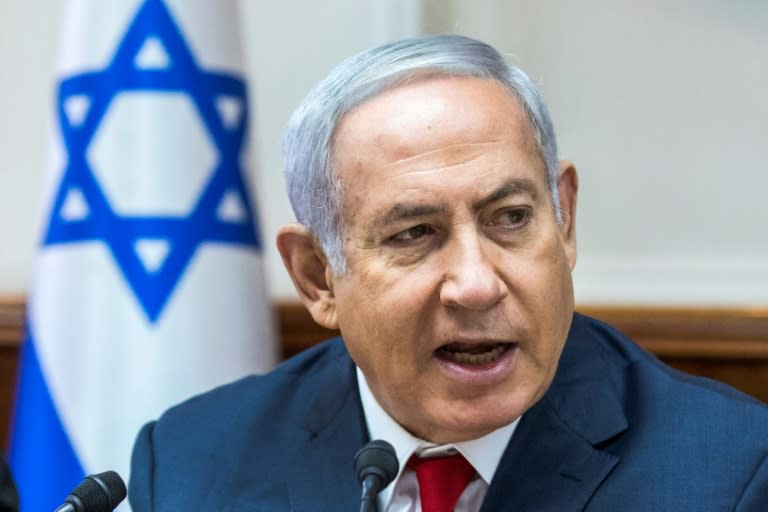Israeli defence minister quits: What you need to know
Israeli Defence Minister Avigdor Lieberman announced his resignation on Wednesday, leaving the future of Prime Minister Benjamin Netanyahu's government uncertain. Here is where the situation stands: Why did Lieberman resign? Lieberman has long called for harsh action against the Palestinian Islamist movement Hamas, which runs the Gaza Strip, and has recently made clear he disagrees with Netanyahu's strategy. Their disagreement came to a head with Tuesday's ceasefire that ended the worst escalation between Israeli and Palestinian militants in Gaza since a 2014 war. Lieberman called it "capitulating to terror". Political considerations likely also played a role. There has long been speculation that elections will be called before November 2019, when they are due. The time was perhaps right for Lieberman to quit and seize momentum for his small, right-wing party Yisrael Beitenu, which holds fewer seats in parliament than Netanyahu's Likud and his rivals from the far-right Jewish Home. Elections coming? By resigning, Lieberman removes five seats from Netanyahu's parliamentary coalition, leaving the premier with a one-seat majority (61 out of 120 seats). One of the main reasons Netanyahu negotiated with Lieberman to join his coalition in 2016 was to give himself some breathing space. The government formed after 2015 elections was already seen as the most right-wing in Israel's history even before Lieberman joined. It can in theory seek to survive until the end of its four-year term, but it is at the mercy of the various parties' interests and those of Netanyahu himself. Likud says early elections will not be necessary and that Netanyahu is now seeking to stabilise the coalition. But Jewish Home, the party of Education Minister Naftali Bennett, was threatening to withdraw if he is not given the defence portfolio. Netanyahu would likely be reluctant to grant such a position to Bennett, one of his main rivals on the right. No Israeli government has served out its full term in 30 years. What are stakes for Netanyahu? Prime minister for a total of more than 12 years, Netanyahu could surpass Israel's founding father David Ben-Gurion's record next year. Polls suggest he and his Likud would be favourites should polls be called, with Netanyahu's reputation as Israel's "Mr. Security" still valued among voters, though it's unclear if the recent Gaza escalation will affect that. There has been speculation for months that Netanyahu may opt for early elections, particularly with the police having recommended charges against him in two corruption probes. The attorney general is expected to decide whether to bring charges in the months ahead, and the thinking is that he would be better placed to combat them with a fresh electoral endorsement. But he would want to make the move at the most advantageous time and he is currently facing criticism over the Gaza ceasefire. 'Victory' for Gaza and Hamas? After months of deadly unrest, Hamas and its ally Islamic Jihad celebrated Lieberman's resignation as a "victory." Egypt and the United Nations have been attempting to mediate a long-term truce between Hamas and Israel, and Netanyahu has admitted he welcomes mediation to prevent a humanitarian collapse in Gaza. Netanyahu has preferred to contain Hamas rather than seek to remove it from power, worried that it would leave a power vacuum in Gaza and that Israel would have difficulty assuming security responsibility for the territory it withdrew from in 2005. "I do not shrink from a necessary war but I want to avoid it when it is not essential," Netanyahu said Saturday. At the same time, he said there was no political solution for Gaza. "The time has come for us to understand what every child in Gaza knows: Bibi is in favour of the Hamas regime," Nahum Barnea wrote in Israel's Yediot Aharonot newspaper, using the premier's nickname. "He is in favour of the Hamas regime because he doesn’t find any of the other alternatives appealing."



